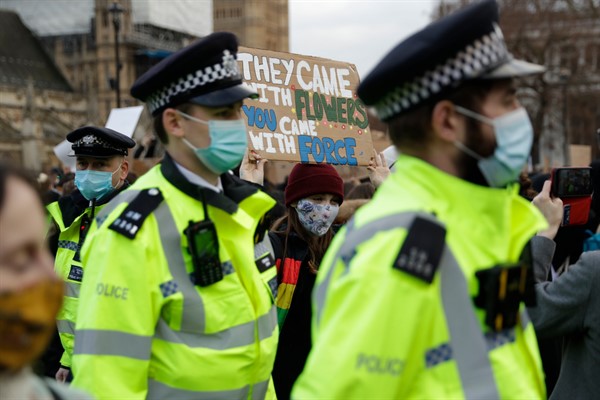In the introduction to her 2013 book, “Policing Protest,” the Italian scholar Donatella della Porta described the stereotypical image of a British policeman as a “friendly bobby giving directions to a foreign tourist.” That amiable, unarmed, neighborly figure, she noted, was emblematic of a traditional policing style in the United Kingdom that had once been seen as a model by many agencies elsewhere in Europe.
Today, the prevalent image of British security forces could not be more different. On March 12, a London Metropolitan Police officer was charged for the kidnap and murder of 33-year-old marketing executive Sarah Everard, an incident that sparked a nationwide uproar over violence against women in the U.K. The following day, the police broke up a vigil for Everard in South London’s Clapham Common park, on the grounds that it violated COVID-19 restrictions on public gatherings. Images and footage showed officers grappling with mourners, pinning female attendees to the ground, escorting women away in handcuffs, and trampling flowers that had been placed at a makeshift memorial.
“There was a really beautiful atmosphere of solidarity, rage and sadness,” one women’s rights activist who was present at the vigil told Time’s Suyin Haynes. “And then the police felt that they had the right to brutalize the women who had gone to Clapham Common that day.”

